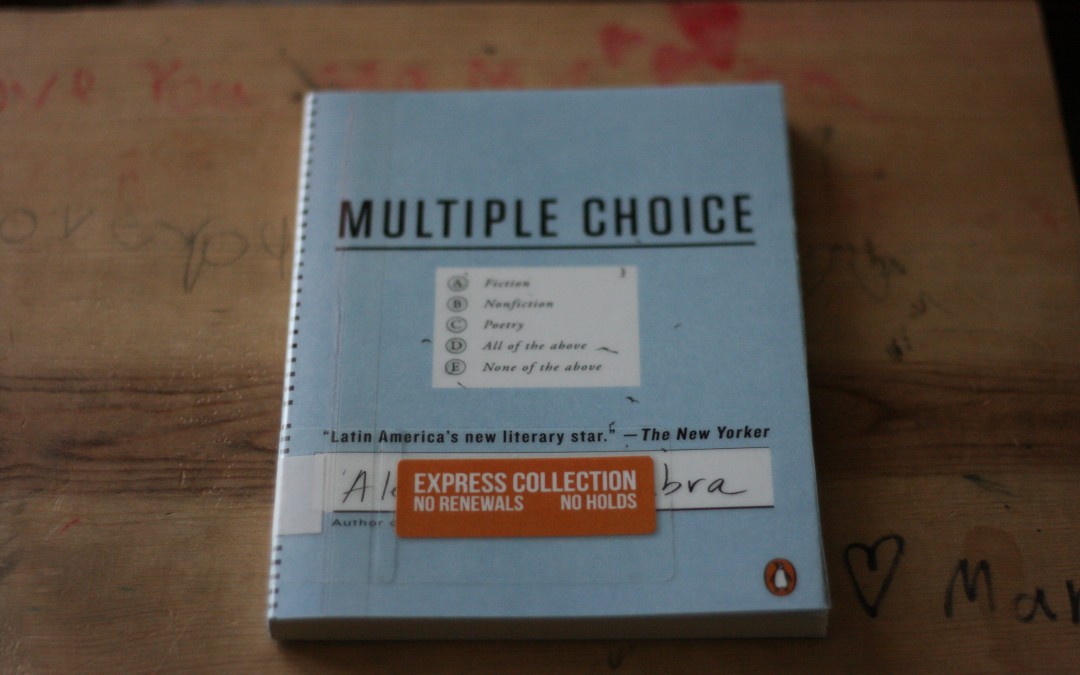First, I have to say, I read poetry every single day. I’m a firm believer in how poetry can help its readers increase their grasp of language and metaphor and the simplicity of life made complex. I love reading poetry, and recently I picked up Multiple Choice, by Alejandro Zambra.
Zambra is a Latin American poet who pushes the poetry form in a very interesting way. His entire book is structured like a standardized test. I know this sounds weird, but it was really, really interesting. He broke the book down into several sections, including a strictly multiple choice portion, a comparison portion, and a portion with short narrative passages and multiple choice questions about those passages. This was probably the most interesting poetry book I’ve read to date.
What his form did for readers is it gave them an opportunity to participate in the meaning of the poem. Poets usually do this anyway—they write a poem, we have the privilege of interpreting it through our life’s lens. But Zambra did this even more intentionally by asking readers questions and giving them choices for how the resulting poem would be structured. I found this fascinating.
Zambra is funny, introspective, political, mysterious and poignant. He writes about family and love and authoritarian living, and, at the heart of Multiple Choice, he explores the difference between thinking for ourselves and walking the world as trained, obedient people. I loved the creativity of his form, the flow of his narrative passages and the limitless possibilities he gave me to interpret his poems. It was a poetry book well worth reading.
Robin Coste Lewis’s poetry debut, Voyage of the Sable Venus: and Other Poems, won the National Book Award for poetry. Her book is a meditation on the black female and was riveting and beautiful in its own way.
Lewis bookended her title poem with autobiographical poems that examined what it was like living in the world as a black female. Her middle section was a log of titles of artwork from ancient times to the present time that featured or commented on the black female. She used those titles to craft a long, drawn out collection of free verse poems that included lines like “Black female holding a bowl,” “Black female kneeling by a master” and others. It was an interesting look at the way the black female has been portrayed in historical times up to the present.
Lewis explores stereotypes, the construction of our histories and our selves, and the impact of art on race and relationship. Voyage of the Sable Venus was a beautiful offering to the world of poetry.
I hope you enjoyed these book recommendations. Be sure to pick up a free book from my starter library and visit my recommends page to see some of my favorite books. If you have any books you recently read that you think I’d enjoy, contact me. I always enjoy adding to my list. Even if I never get through it all.


